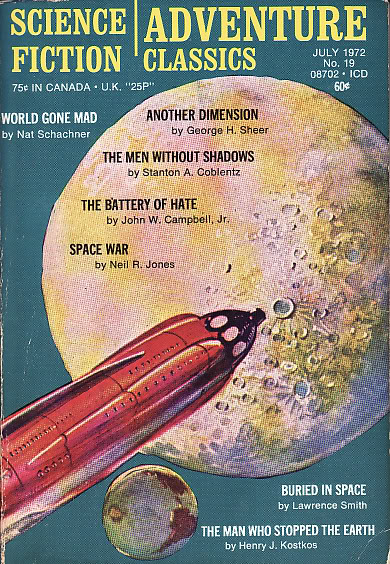J-Sun
⚡
- Joined
- Oct 23, 2008
- Messages
- 5,324
Oh, forgot to say what I was reading. My streak of really excellent SF ended with some pretty mediocre (at best) SF. I read van Vogt's Linn sequence of The Empire of the Atom and The Wizard of Linn. This is fairly sedate van Vogt with an odd milieu, a not very likeable or even interesting protagonist, and doesn't do anything van Vogt hadn't done before (or Leiber or Heinlein or Campbell or Asimov - and done much better). Pseudo-Roman Empire c.10,000 AD with swords and spaceships where science is treated as a religion and the mutant superhero *spoilers, technically, though not really* saves humanity from the aliens (gasp!) *end spoilers*. I'd recommend most other 40s-50s van Vogt and Leiber's Gather Darkness, Heinlein's Sixth Column, Asimov's Foundation Trilogy, and even Anderson's The High Crusade over these but they're not awful, if you're bent on reading everything van Vogt wrote in his first phase.
Now reading Heinlein's Podkayne of Mars, which I thought was the only Heinlein juvenile I hadn't read. I thought I'd started reading this before, gotten distracted, and never finished it, but I sure remember everything I've (re)read so far.
Now reading Heinlein's Podkayne of Mars, which I thought was the only Heinlein juvenile I hadn't read. I thought I'd started reading this before, gotten distracted, and never finished it, but I sure remember everything I've (re)read so far.


